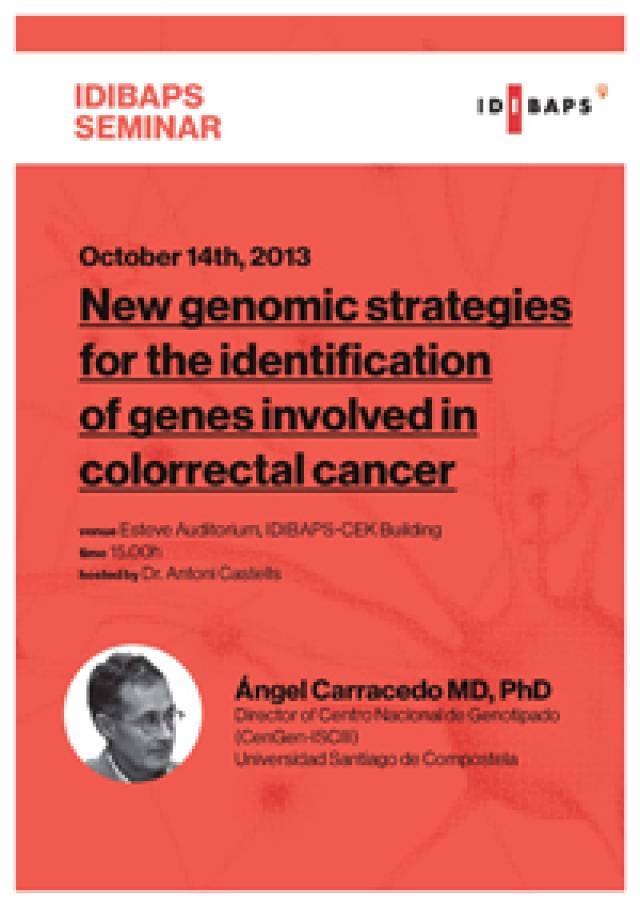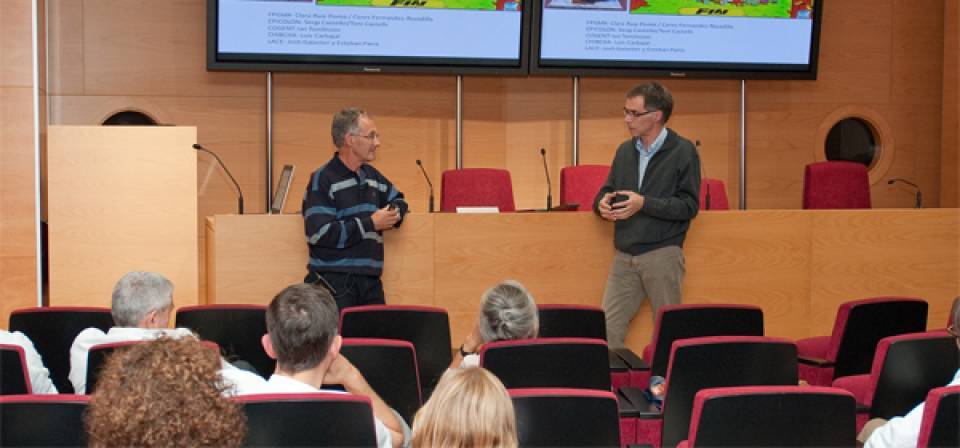
In addition to Genomics, Epigenetics or Pharmacogenomics, which are offering interesting results, Dr. Carracedo explained the rising interest in admixture mapping. Admixture results in the introduction of new genetic lineages into a population, and offers unique information about the importance of genetic variations in the apparition of a genetic disease. His presentation raised a high interest and illustrated the vast experience of the speaker and the benefits of his collaboration with teams like the one directed by Dr. Antoni Castells at IDIBAPS.
Learn about the next IDIBAPS Seminars 2013.

